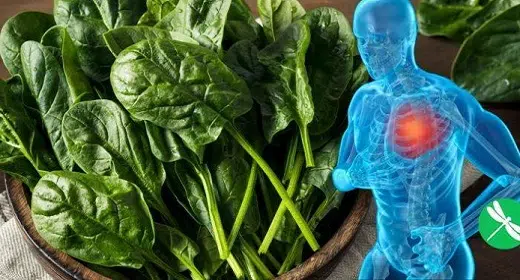by Jezreel Lopez: Magnesium is an essential mineral that plays a vital role in human health. While it’s responsible for over 600 reactions in the body–including energy metabolism and creation of proteins…
experts estimate that about 50% of Americans are deficient. Because it plays such a key role in immune response, bone health, muscle performance, blood sugar regulation, and many other functions, it’s important to make sure you’re getting enough magnesium.
The good news is that there are a variety of foods that are magnesium-rich. By incorporating these into your diet, you can ensure that you steer clear of the variety of conditions that can result from magnesium deficiency. While supplements are available, it’s easiest to get your recommended daily value from fresh fruits, veggies, fish, and nuts.
Why Your Body Needs Magnesium
Every cell in the body contains magnesium. While this includes muscles, blood, and soft tissue, 60% of the magnesium found in your body is in your bones. It’s essential in helping to prevent a variety of health conditions, including osteoporosis, inflammatory disorders, metabolic syndrome, and diabetes.
Since this mineral is key in many internal processes, issues like insulin resistance, PMS, migraines, obesity, diabetes, and depression can all be improved with increased intake. For example, one study tested magnesium supplementation on people with type 2 diabetes. The results showed that those who received the supplement improved their insulin sensitivity and metabolic control. (3, 4)
35 Foods High In Magnesium
While supplements are an option, you can easily get enough magnesium through your diet. By incorporating foods on the list below, you’ll ensure you’re giving your body everything it needs to function at its best. The recommended daily intake is 400-420mg per day for men and 310-320mg for women.
Top 15 Foods Highest In Magnesium:
- Hemp seeds: Serving Size 1/4 cup, 272mg
- Pumpkin seed – kernels: Serving Size 1 oz, 168 mg
- Sunflower seeds: Serving Size 1/4 cup, 113mg
- Swiss Chard, cooked: Serving Size 1/2 cup, 86mg
- Almonds, dry roasted: Serving Size 1 oz, 80 mg
- Spinach, boiled: Serving Size ½ cup, 78 mg
- Cashews, dry roasted: Serving Size 1 oz, 74 mg
- Pumpkin seeds in-shell: Serving Size 1 oz, 74 mg
- Peanuts, oil roasted: Serving Size ¼ cup, 63 mg
- Cereal, shredded wheat: Serving Size 2 large biscuits, 61 mg
- Soymilk, plain or vanilla: Serving Size 1 cup, 61 mg
- Black beans, cooked: Serving Size ½ cup, 60 mg
- Edamame, shelled, cooked: Serving Size ½ cup, 50 mg
- Dark chocolate -60-69% cacao: Serving Size 1 oz, 50 mg
- Peanut butter, smooth: Serving Size 2 tablespoons, 49 mg
Additional Sources Of Magnesium:
- Bread, whole-wheat: Serving Size 2 slices, 46 mg
- Avocado, cubed: Serving Size 1 cup, 44 mg
- Potato, baked with skin: Serving Size 3.5 oz, oz, 43 mg
- Rice, brown, cooked: Serving Size ½ cup, 42 mg
- Yogurt, plain, low fat: Serving Size 8 oz, 42 mg
- Breakfast cereals fortified: Serving Size 10% fortification, 40 mg
- Oatmeal, instant: Serving Size 1 packet, 36 mg
- Kidney beans, canned: Serving Size ½ cup, 35 mg
- Banana: Serving Size 1 medium, 32 mg
- Cocoa powder– unsweetened: Serving Size 1 tablespoon, 27 mg
- Salmon, Atlantic, farmed: Serving Size 3 oz, 26 mg
- Milk: Serving Size 1 cup, 24–27 mg
- Halibut, cooked: Serving Size 3 oz, 24 mg
- Raisins: Serving Size ½ cup, 23 mg
- Chicken breast, roasted: Serving Size 3 oz, 22 mg
- Beef, ground, 90% lean: Serving Size 3 oz, 20 mg
- Broccoli, chopped & cooked: Serving Size ½ cup, 12 mg
- Rice, white, cooked: Serving Size ½ cup, 10 mg
- Apple: Serving Size 1 medium, 9 mg
- Carrot, raw: Serving Size 1 medium, 7 mg










































